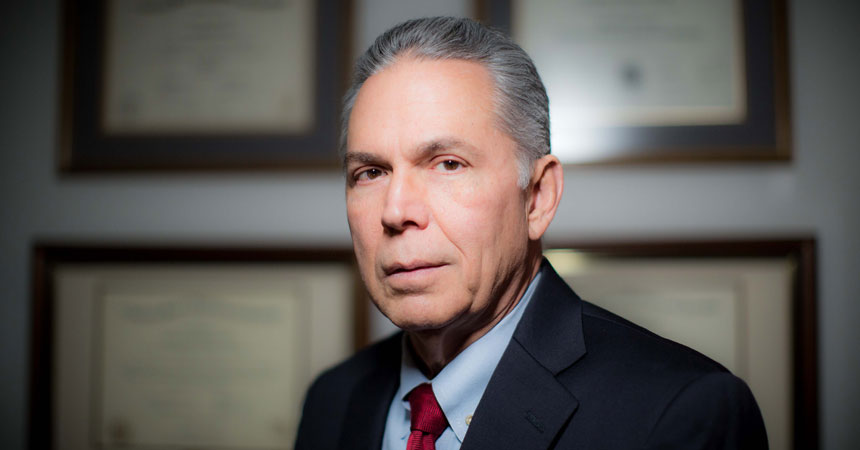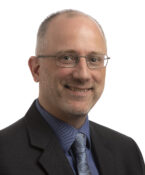For seniors, the growing opioids menace
One week – that’s how long it can take for a prescription pain killer to turn into an addiction to opioids.
Patients believe opioids – a class of pain-killing drugs that can produce morphine-like effects – are safe and effective because their physician prescribed them, said Annesha White, PharmD, PhD, Associate Professor of Pharmacotherapy at UNT Health Science Center. But they can be very dangerous, especially when elderly people take them along with all their other drugs.
“We’re talking about sudden, instant death,” she said.
While the nation’s opioid crisis among young adults has grabbed headlines, another silent epidemic has been growing. Some 17 percent of adults 65 and older are abusing prescription medications, according to the Office of Alcoholism and Substance Abuse Services.
Seniors – from the Greatest Generation to the Baby Boomers – are taking a lot of medications and unknowingly putting themselves at risk for overdoses and drug interactions, Dr. White said. Often suffering with chronic pain and living in isolation, they can easily slip into addiction with no one noticing, least of all themselves.
But they are all around us. Although those 65 and older make up only 13 percent of the U.S. population, they consume 33 percent of all prescription drugs.
In 2016, one-third of Medicare beneficiaries – about 14.4 million people – filled at least one prescription for an opioid. On average, seniors fill between nine and 13 prescriptions a year. With more meds come more risks.
“We have elderly people taking over-the-counter medications, various prescription drugs and opioids,” Dr. White said. “They have no idea they are causing an increased risk of respiratory distress.”
A population in pain
The ravages of age – from worn-out knees to fractured hips – can lead older adults straight to the most potent painkillers.
Opioids, which should only be used short-term, are piled on top of a smorgasbord of pills: benzodiazepines for anxiety, SSRIs for depression, sleeping pills for insomnia, muscle relaxants for injuries, blood thinners for stroke prevention. The list goes on and on.
When their family physician refuses to fill opioid prescriptions, patients often resort to doctor shopping.
A recent study found that 22,000 Medicare beneficiaries doctor shop – getting large amounts of drugs prescribed by four or more doctors and filled at four or more pharmacies.
“A lot of times they go to one doctor for tranquilizers, another for opioids,” said A. Scott Winter, MD, Associate Professor of Psychiatry and Geriatrics. “That’s dangerous.”
If they have a lung disease such as emphysema, it can be deadly.
“Someone who is taking all these drugs and then gets the flu on top of having emphysema, can die,” he said.
Adding to the risks are the physical changes and shifts in metabolism that make it harder for a senior’s body to handle medications, Dr. White said.
“How the body distributes a drug, how it dissolves and how it is absorbed changes with age,” she said. “A dosage that has only a slight effect on a younger person could be lethal for an elderly person.”
Elderly adults are especially vulnerable because so many are struggling with chronic pain. About 50 percent of those who live on their own and 75 percent of those in nursing homes endure pain daily.
In one study conducted by Dr. White, she looked at patients who had been injured on the job and had been prescribed opioids for their pain.
“We found patients who had developed a high tolerance to opioids after taking extremely high dosages over 10 or more years,” she said. “They have physical and psychological symptoms of withdrawal associated with the drug, and they’ll turn to the streets to get it if they have to.”

Wanting to get better
For the tough-minded, “pull yourself up by the bootstrap” generation, addiction is viewed as a weakness.
“There’s is just so much embarrassment and shame surrounding it,” Dr. Winter said. “People in their 80s and 90s tend to view it as a moral failure.”
Family members rarely raise red flags. They are more likely to blame changes in behavior on dementia, depression and other health problems. It’s more likely that a physician or pharmacist will broach the subject of addiction and encourage an elderly person to seek treatment.
But don’t expect to find many 75-year-olds sitting in a circle for group therapy. They see rehab as a place for hard-core addicts – certainly not for someone like themselves, Dr. Winter said.
They also tend to worry it will take too long and cost too much. Often they don’t want to share family secrets with strangers or leave their homes.
There are few treatment centers designed specifically for the elderly. For the most part, older patients turn to family physicians rather than psychologists or psychiatrists for help.
Most elderly people don’t have to go to rehab, Dr. Winter said. But they have to understand that getting off an opioid is difficult.
“With heroin, you feel better for 15 minutes,” he said. “The drugs I give you for anxiety or depression can take a month to start working and do half as well.”
But they’re legal – and not addictive.
Elderly patients tend to be willing to get treatment, if the information is presented in a way that makes them feel safe, secure and confident, Dr. Winter said.
“If they feel judged, they’re not likely to respond,’’ he said. ‘’But if addiction is cast as a medical issue then they are much more likely to feel comfortable about accepting help.’’

Alternative therapies
With so many risks surrounding addiction to prescription drugs, there’s been a growing effort to shift patients to alternative therapies that have fewer risks. Exercise, yoga and acupuncture, for example, can provide relief from pain without posing the same risks that many prescription drugs do, Dr. White said.
Drugs other than opioids can also help. The antiepileptic drug Gabapentin has been used to relieve nerve pain. Antidepressants have also been prescribed for pain.
Unlike younger generations, seniors are quicker to recognize the risks of addiction and embrace treatment. Statistically, their prognosis is better than that of a younger person.
They really want to get better, Dr. Winter said. That’s why they respond to a physician’s advice regarding addiction more readily than the young.
“Young people feel like they are bulletproof,” he said. “But the elderly are very in touch with their mortality.”






Social media